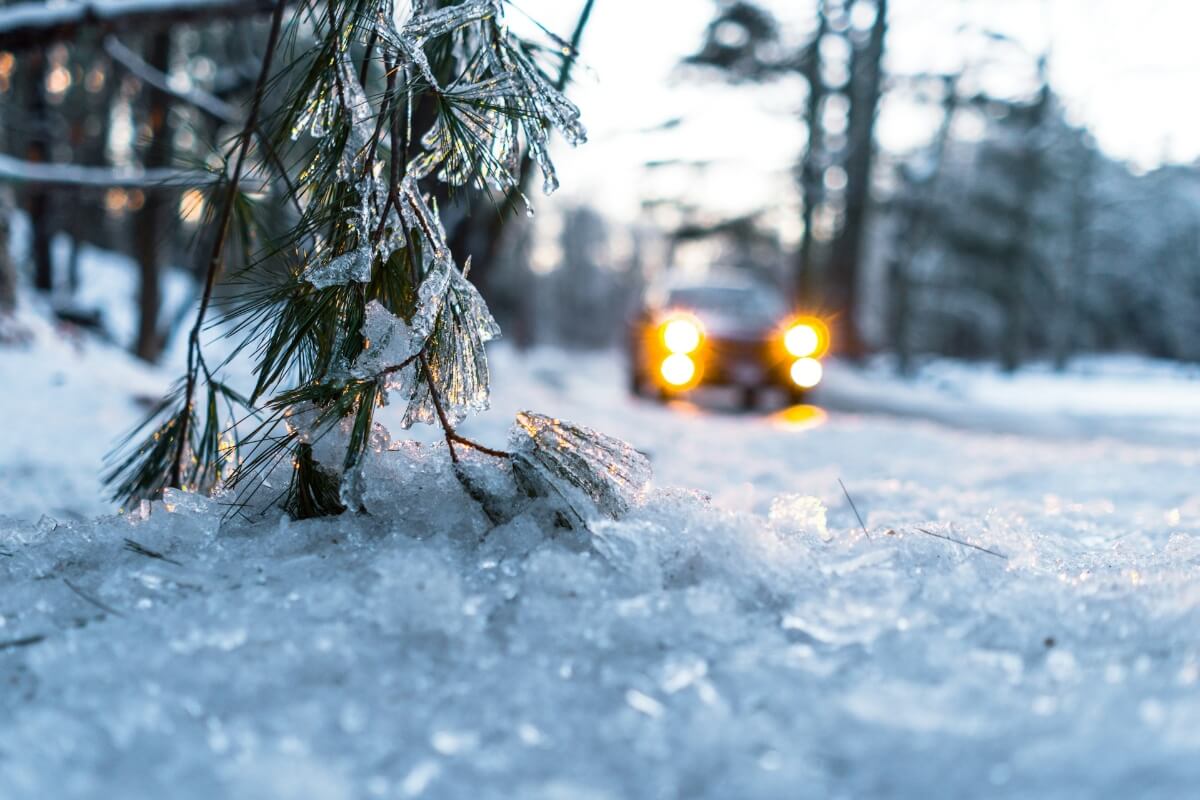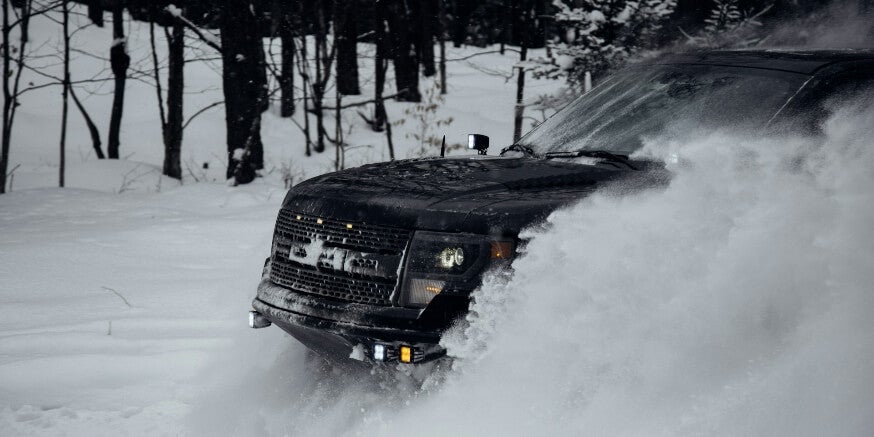Beginner’s Guide to Winter Off-Roading: Everything You Need to Know
Martin Banks 02.14.24

The temperatures dropping below freezing doesn’t mean you have to put the off-roaders up for the season. Winter off-roading is popular when cabin fever takes over and gets people outdoors. This type of off-roading is fun, but preparation is necessary before heading out. Snowy terrain can be challenging for beginners, so here are a few pointers you need to know.
Off-Roading Coverage on AllOutdoor
- Can-Am Off Road Gives to Texas Game Wardens via Can-Am for a Cause
- Electric Off-Road Vehicles – The Pros and Cons for Outdoorsmen
- 4 Rust Prevention Tips to Improve the Longevity of your Off-Road Vehicles
- Polaris Off-Road Announces 2023 Lineup: All-electric Ranger XP Kinetic
Winterize Your Vehicle
Off-roaders need special preparation, considering the bumpy rocks, logs, hills and other obstacles in your way. It requires additional preparation to ensure your machine is ready for the snow and ice. Here are a few ways you can prepare your vehicle for the road ahead:
- Tires: You must make essential changes to winterize your vehicle and tires should be at the top of your list. Snow tires are dependable because of their flexibility in cold weather, thus improving their grip when the road has minimal traction. All-terrain tires are another solid option because they’ll remain useful when the spring arrives.
- Battery: Your battery should be another priority because of its winter performance. Cold weather reduces its capacity, so inspecting it before the season arrives is crucial. Plus, you should ensure it has a full charge before heading out.
- Oil: The cold weather calls for a different oil blend to make your motor work as well as possible. Synthetic oil is a suitable swap f because it improves flow and protects the engine from freezing temperatures. Winter blends ensure your engine faces less wear and lasts through the season.
Adapt Your Driving
Once your vehicle is ready, you should consider your driving approach for winter off-roading. The cold conditions will be unlike anything you’ve encountered, so adapting your habits for the season is critical to remain safe. Remote trails make seeking help more challenging, so keep these tips in mind:
- Reduce your tire’s psi for increased traction while keeping it above 15.
- Stay on developed trails.
- Slow and steady wins the race.
- Utilize high gear to decrease wheelspin.
Utilize Upgrades
While driving in the snow can be intimidating, you don’t have to do it bare. Most off-road vehicles have robust aftermarket communities with numerous opportunities to upgrade your rig. Finding the right parts and pieces can make winter off-roading smoother and get you out of a bind. For example, consider traction boards because they help when digging snow and sand due to their multipurpose design. Getting stuck in the snow can be a nuisance, so these devices will help you make freeing yourself less time-consuming. Another worthy tool for winter off-roading is a lift kit. This mechanism raises your vehicle to make it less vulnerable to the ice and snow on the ground. However, lift kits can affect your big rig’s stability with a higher center of gravity.
Prioritize Regular Maintenance
While vehicle maintenance is essential in any season, prioritize regular care in the winter because of its impact on your vehicle. Cold weather means your off-roader must work harder, straining your engine and suspension more than usual. Be proactive with your maintenance to ensure your machine is ready to go when you want to take it for a spin.
One important form of maintenance is regularly checking your tire pressure and tread depth. Seasonal or all-terrain tires should hold up well in the cold, but their wear and tear could be a concern, so perform the penny test by sticking the small coin inside the tread. Your tread depth is acceptable if Lincoln’s head disappears in the tire – however, a visible head means your tires might not be suitable for the snowy terrain.
An overlooked part of winter maintenance is cleaning your car. People associate this activity with the summer and warm weather, but it remains critical in the cold. Auto experts say washing once or twice weekly in the winter is best because of what your machine goes through during the season. While winter brings slow, you must also consider the salt, sand and chemicals on the road to help drivers get traction.
Pack Safety Gear
Winter off-roading calls for enhanced safety measures, as the weather can turn too dangerous for humans to be outdoors. The early 2024 winter storms lead to at least 95 deaths, so make your off-roader safe for the rough conditions. For example, pack recovery equipment to aid your machine if you get stuck. Winter off-roaders should also bring straps, tow ropes, winches and snatch blocks to make the job easier.
Off-Roading Success in the Winter
Who says you have to wait until the spring thaw? Off-road fans nationwide take their favorite machines on the snowy terrain if the trails are open. If it’s your first time, use this guide for winter off-roading to stay safe.
